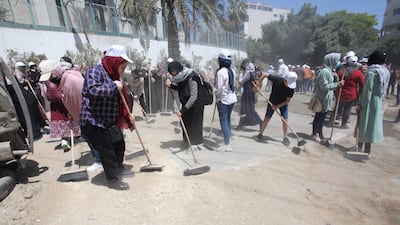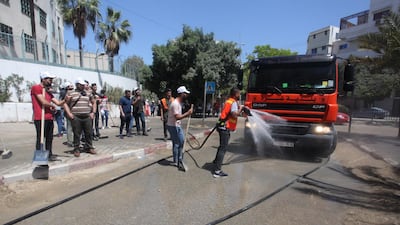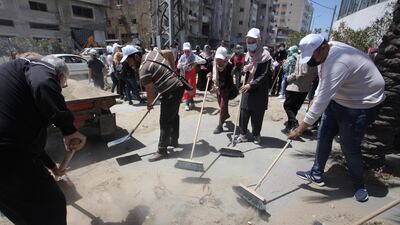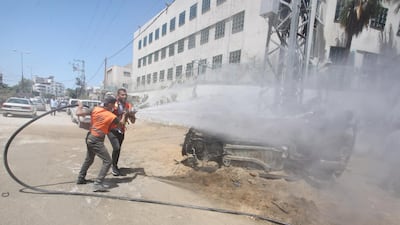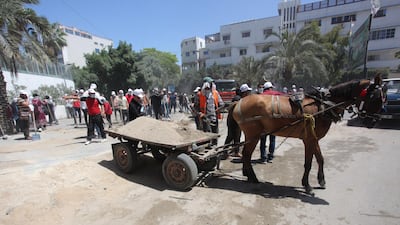Water, electricity, schooling, medicine and housing were hit hard during the 11-day Israeli bombardment of Gaza.
More than 250 people, including 66 children, were killed, half of the drinking water supply was disrupted and at least 16 medical centres, including Gaza’s only coronavirus testing laboratory, were affected.
With the ceasefire, aid organisations, officials and civilians are left with the daunting task of rebuilding – a process the UN and World Health Organisation have estimated could cost more than $40 million in emergency funds and take several years.
Thousands of injuries have further strained a stretched and now partly destroyed medical infrastructure.
The WHO said 29 health centres were hit in the bombardment.
Local aid workers, who make up most of the United Nations Relief and Works Agency staff, have also suffered.
"Many of our staff have also experienced losses and tragedy within their own family," Philippe Lazzarini, Commissioner General of the UNRWA, told The National.
He said that when he arrived at the agency's headquarters, he met a man who had lost two children.
Despite the huge take of rebuilding, aid workers, officials and Gazans are coming together to offer assistance wherever needed.
Volunteers working under the Han'amerha, or "we will rebuild it" campaign, took to the streets to sweep up rubble after the destruction.
With half of the enclave’s drinking water supply affected and sewage spilling into populated areas, a risk of water-borne illnesses has emerged.
“Destruction at water and sanitation facilities, including desalination plants serving 400,000 people, is hampering public health measures,” the WHO said on Sunday.
Damage to power lines and the suspension of fuel imports into Gaza from Israel meant homes and some hospitals were in dark for most of the day, limiting chemotherapy services and vital oxygen supplies for coronavirus patients.
The WHO estimates it will need at least $11m for its health response over the next three months.
The UN children’s fund said it was providing 50,000 litres of fuel to help water, sanitation and hygiene work while the WHO said it had offered $160,000 in essential, trauma-related medication and equipment in Gaza.
Aid organisations said they were ensuring that contingency measures were in place for any such conflict in the future.

